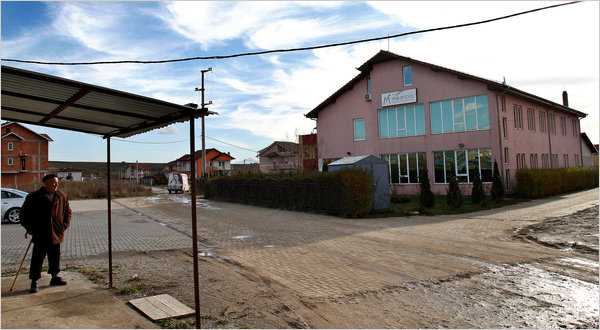By DAN BILEFSKY
Published: November 15, 2010
PRAGUE — At least seven people have been charged with participating in an international organ-trafficking network based in Kosovo that sold kidneys and other organs from impoverished victims for up to $200,000 to patients from as far away as Israel and Canada, police and senior European Union officials said Monday.

According to the indictment, the traffickers lured people from slums in Istanbul, Moscow, Moldova and Kazakhstan with promises of up to $20,000 for their organs. Law enforcement officials say many never received a cent. The operations were performed at a private clinic in a run-down neighborhood on the outskirts of Pristina, the Kosovar capital.
While the ring was first discovered two years ago, the global scale of the network and its victims is only now becoming clear.
Officials said the ringleader was a highly regarded surgeon and professor at Pristina University Hospital, Dr. Lutfi Dervishi. The clinic was run by his son, Arban. Also charged was Ilir Rrecaj, a senior official in Kosovo’s Health Ministry when the ring was broken. They and two others are accused of crimes including trafficking in humans and body parts, unlawful medical activity, participating in organized crime, and abuse of office. All were released on bail.
The charges have shaken Kosovo, which has been struggling to integrate with the West since it declared independence from Serbia in February 2008. The case is also a test of the nascent legal institutions and rule of law as Kosovo seeks to overcome a culture of endemic lawlessness and corruption that has reached the highest levels of government.
The trafficking network’s tentacles reached far. Warrants were issued for a Turkish doctor and an Israeli financier, and two other doctors, an Israeli and a Turk, were named as co-conspirators.
The police said the ring had its roots at a medical conference in 2006 in Istanbul, where Dr. Dervishi met the Turkish doctor being sought, Yusuf Sonmez. Law enforcement officials describe Dr. Sonmez as a notorious international organ trafficker.
The Medicus clinic had been founded by a European philanthropist who aided ethnic Albanian doctors during the war in Kosovo in 1999. Dr. Dervishi, police officials said, secretly transformed it into a hub for illegal organ transplants, which were performed by Dr. Sonmez.
The indictment was first reported by The Associated Press. In it, a European Union prosecutor, Jonathan Ratel, said that in 2008, 20 foreign nationals living in “extreme poverty or acute financial distress” were “recruited with the false promises of payments.”
The police said they broke the ring in November of that year, when a young Turkish man, Yilman Altun, was found at the Pristina airport, weak and frail. Mr. Altun told the police that his kidney had been stolen. When the police raided the Medicus clinic, they discovered an elderly Israeli man who had received Mr. Altun’s kidney.
European Union officials said that the indictment in the case had been filed in district court in Kosovo and that a preliminary hearing was expected by the end of the year. If a judge confirms the charges, a trial will follow.
The European Union has a large law enforcement mission in Kosovo to combat crime and corruption. But that fight has proved difficult, with suspicions of bribes, money laundering, organized crime, fraud and now organ trafficking, ensnaring high-level government officials.
Several countries are examining the Kosovo ring, with police investigators combing through the phone records, computer hard drives and bank transfers of those charged. European Union officials said the recipients paid for the kidneys by bank transfers, helping lead the police to the main suspects.
Western law enforcement officials said they suspected the ring might be part of a larger criminal network whose nexus was in Israel. In September, five doctors from South Africa were charged with participating in an international kidney-trading syndicate in which dozens of poor Brazilians and Romanians were paid for kidneys for wealthy Israelis. Analysts said the organ-trafficking case was part of a disturbing global trend in which unscrupulous traffickers take advantage of the growing waiting lists of desperate patients and the vulnerability of poor people further buffeted by the international financial crisis.
In the United States, more than 109,000 people are on the waiting list for organ transplants, mostly kidneys, and 18 die each day, according to the United Network for Organ Sharing, which manages the American transplant system.
A version of this article appeared in print on November 16, 2010, on page A4 of the New York edition.
via 7 Charged in Kosovo-Based Organ-Trafficking Ring – NYTimes.com.